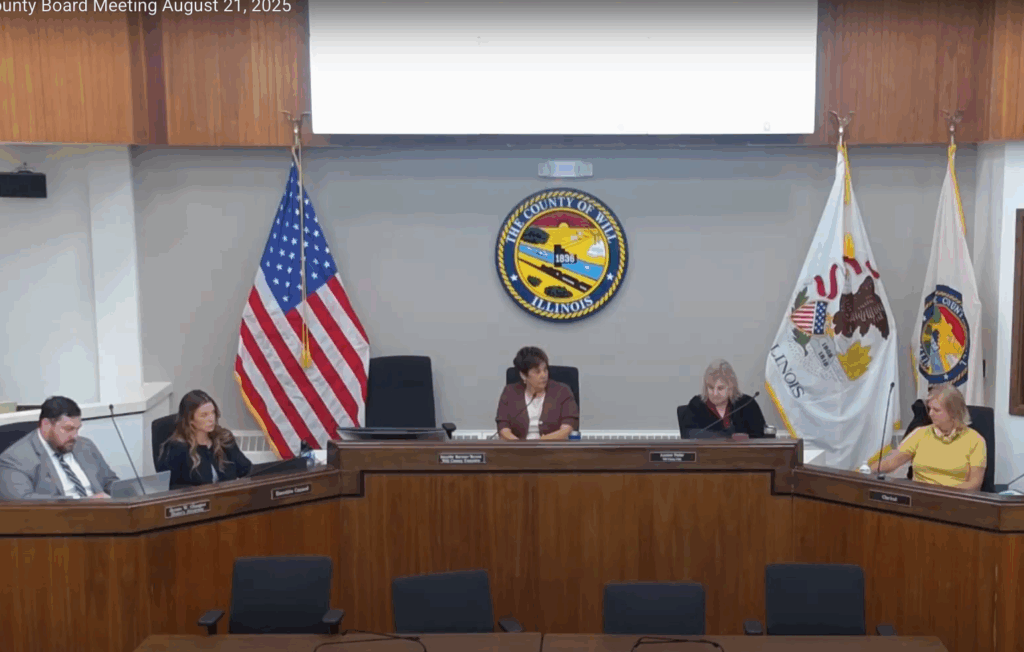GOP stands up for U.S. military strikes on suspected drug boats
President Donald Trump and the Pentagon show no signs of changing course on using military strikes to destroy suspected drug boats in the Caribbean.
“We are taking the fight out to the seas where it needs to be,” U.S. Rep. Beth Van Duyne, R-Texas, told The Center Square. “We’re seeing hundreds of thousands of people who are being murdered by drugs. They’re illegally pouring in over our borders.”
Her Republican colleagues in the Senate shut down a Democrat-led proposal this week that would have required Trump to get congressional approval before using the military to destroy suspected drug boats in the region.
In a 51-48 vote, Sens. Lisa Murkowski, R-Alaska, and Rand Paul, R-Ky., voted with Democrats in favor of the measure. Republicans blocked it with help from Sen. John Fetterman, D-Pa. Sen. Ted Cruz, R-Texas, didn’t vote on the measure.
Last month, when U.S. Secretary of State Marco Rubio said the military strikes would continue, Fetterman was all for it.
“Fully support confronting the scourge of cartel drug trafficking to our nation,” he wrote in a post on X.
Trump’s use of military strikes on suspected drug boats marks a new strategy in the war on drugs. Previously, U.S. forces stopped suspect vessels, made arrests, and seized drugs.
Last week, Trump told Congress that the U.S. is engaged in “armed conflict” with drug cartels in the Caribbean after ordering at least four military strikes on suspected drug boats in the region.
“The President determined that the United States is in a non-international armed conflict with these designated terrorist organizations,” according to the confidential notice the administration sent to Congress. Trump directed the U.S. Department of War to “conduct operations against them pursuant to the law of armed conflict.”
Trump ordered military strikes on Sept. 2, Sept. 15, Sept. 19 and Oct. 3 on suspected drug boats in the Caribbean. Trump said the Venezuelan gang Tren de Aragua was using the boats to smuggle drugs to the U.S.
After one of the U.S. strikes against a speedboat, agents from the Dominican Republic’s National Drug Control Directorate and the Dominican Republic Navy seized 377 packages of suspected cocaine about 80 nautical miles south of Beata Island, Pedernales province.
On his second day in office in his second term, Trump issued an executive order designating Mexican cartels, the Venezuelan gang Tren de Aragua, and Salvadoran La Mara Salvatrucha (known as MS-13), as foreign terrorist organizations and specially designated global terrorists under the U.S. Constitution, Immigration and Nationality Act and International Emergency Economic Powers Act.
The U.S. said the four boat strikes resulted in 21 deaths. The Sept. 2 attack killed 11. The strike on Sept. 15 killed three, as did the strike on Sept. 19. The Oct. 3 attack killed four. U.S. officials have released a few details about the strikes. Trump posted videos of two strikes on social media. He told reporters about the third. U.S. Secretary of War Pete Hegseth posted a video of the fourth strike, which killed four people, on social media on Oct. 3.
The strikes prompted criticism from Democrats and others, including some Republicans.
David Bier, director of immigration studies at the Cato Institute, said the military strikes were a significant change in U.S. policy and could pose legal challenges.
“The strikes are both illegal and unconstitutional,” he previously told The Center Square. “The law is clear that the military is only authorized to intercept vessels to communicate with them and refer them to civilian law enforcement. The Constitution prohibits war without congressional authorization, and even in a war, the military may not intentionally kill civilians.”
Senators questioned Attorney General Pam Bondi at a hearing this week about what advice she provided to the administration to justify the strikes. She responded: “I’m not going to discuss any legal advice that my department may or may not have given or issued at the direction of the president.”
Colombian President Gustavo Petro – who earlier this year said cocaine is no worse than whiskey – has been critical of the strikes.
“A new war scenario has opened up: the Caribbean,” he recently wrote on X. “Indications show that the last boat bombed was Colombian with Colombian citizens inside it. I hope their families come forward and report it. There is no war against smuggling; what there is is a war for oil and it must be stopped by the world. The aggression is against all of Latin America and the Caribbean.”
The White House disputed those comments and called for Petro to retract his claims.
Petro proposed Thursday that Qatar could serve as a mediator to help stop the strikes.
Venezuela produces cocaine, but not fentanyl, according to the DEA. The bulk of Venezuela’s cocaine is sent to Europe.
Trump said a sharp decrease in boat traffic in the region shows his strategy is working.
Bier said drugs continue to flow into the U.S.
“It will certainly reduce drug trafficking by boats near Venezuela, but will do little to reduce total supply coming to the United States because drug trafficking is a global phenomenon with a variety of channels,” Bier told The Center Square.
The White House and the Pentagon did not respond to questions about the strikes from The Center Square before publication.
Latest News Stories

Frankfort Library Overcharged Nearly $23,000 in Loan Payments Due to Wintrust Bank Error

Frankfort Township Board Denies Liquor and Gaming Permits for Two Restaurants

New Hires Approved for Summit Hill District 161

Frankfort Park District Approves $131,500 for Park Upgrades and Master Plan

Hunter Prairie Park Redevelopment Moves to Next Phase as Demolition Finishes

Will County Board Approves New Fee Schedule for Recorder of Deeds

Frankfort Fire District Explores Tax Referendum, Moves to Hire Outreach Consultant

Summit Hill 161 Awards $115,905 Contract for Dr. Julian Rogus School Play Area

Frankfort Fire District to Spend $92,000 on New Cardiac Monitors

Frankfort Fire District Reviews Tentative Budget for Fiscal Year 2025

Will County Board Formally Opposes Heavier, Longer Trucks on National Roadways

Energy advocate applauds oil and gas commingling updates

